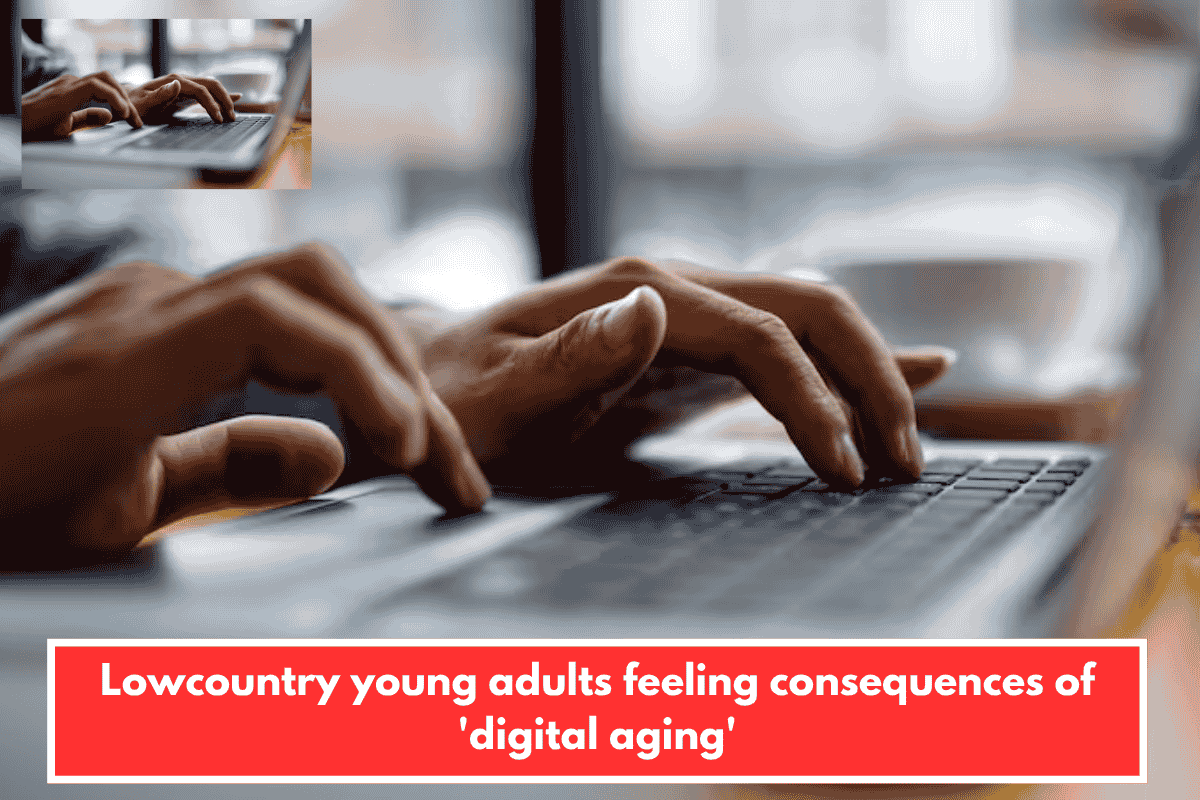Charleston, South Carolina – Many 20- and 30-year-olds report feeling twice their age in today’s technologically advanced culture, and experts agree the phenomenon known as “digital aging” is genuine.
According to Dr. Sarah Coker, director of psychiatry at Roper St. Francis, being sedentary can cause people to feel as if their limbs are stuck.
“If you consider your posture when holding a phone or tablet, you’re bent over. You are leaning. Or consider sitting at a desk right now. “You get complacent for a while, and you lean over,” Coker explained. “That all puts strain on you and your back hurts, your neck hurts, and now all of a sudden you used to think you’re kind of spry and move as a 20-year-old – you’re feeling tight and sore.”
Blue light impacts sleep and vision.
According to Coker, blue light from displays can impair vision, strain the eyes, and keep individuals up at night, leading to weariness.
Katherine Gagnon, owner of Zinnia Wellness Painting in Charleston, promotes work-life balance in her workshops, but she admits she still feels the consequences of excessive scrolling and screen time.
“I believe it’s yin-yang in terms of balance. “As a business owner, I know I need to be on the phone for social media and marketing, which takes a lot of time,” Gagnon added.
Social media promotes comparison anxiety.
Coker stated that social media has been detrimental for people, producing despair and anxiety.
“There’s a sense of loneliness and concern about what they’re accomplishing, what they’re doing, and how much pleasure they’re having. “It’s this comparison that’s impossible,” she explained.
Exercise is as helpful as medications.
Experts recommend staying out of the digital environment to reverse the sense of aging. According to Coker, numerous studies have shown that 35-40 minutes of strenuous exercise three times per week is just as effective as an antidepressant.
Gagnon stated that the solution entails making time for self-care.
“I believe it’s about showing up and making time for ourselves. So we can show up and be present for people for whom we are accountable,” she explained.
The more people walk, the more alive they feel, counteracting the impacts of digital aging.














